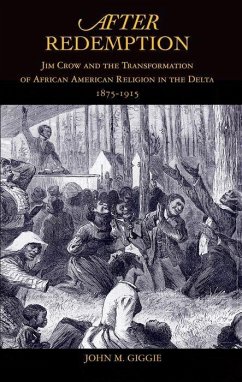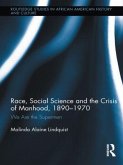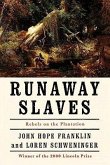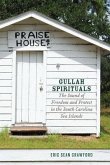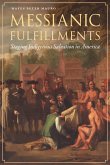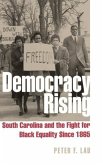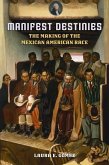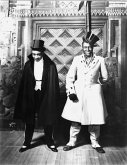Challenging the traditional interpretation that the years between Reconstruction and World War I were a period when blacks made only marginal advances in religion, politics, and social life, John Giggie contends that these years marked a critical turning point in the religious history of southern blacks. In this ground-breaking first book, Giggie connects these changes in religious life in the Delta region - whose popularity was predominantly black but increasingly ruled by white supremacists - to the Great Migration and looks at how they impacted the new urban lives of those who made the exodus to the north. Rather than a straight narrative, the chapters present a range of ways blacks in the Delta experimented with new forms of cultural expression and how they looked for spiritual meaning in the face of racial violence. Giggie traces how experiences with the railroad became a part of spiritual life, how consumer marketing built religious identities, ways that fraternal societies became tied in with churches, the role of material culture in unifying religious identity across the Delta, and the backlash against the worldliness of black churches and the growth of alternate practices.The study take into account folk religion as well as a panopoly of institutions - black Baptist churches, African Methodist Episcopal church, Colored Methodist Episcopal Church, black conferences of the Methodist Episcopal Church, and churches that formed the African-American Holiness movement - and looks at how they vigorously quarreled over the proper definition of religious organization, worship, and consumption. Vivid evidence comes from black denominational newspapers, published and unpublished ex-slave interviews conducted by the Works Progress Administration, legal transcripts, autobiographies, and recordings of black music and oral expression. This work is an excellent fit with the strengths of the OUP lists in African American, Southern, and religious history.
After Redemption fills in a missing chapter in the history of African American life after freedom. It takes on the widely overlooked period between the end of Reconstruction and World War I to examine the sacred world of ex-slaves and their descendants living in the region more densely settled than any other by blacks living in this era, the Mississippi and Arkansas Delta. Drawing on a rich range of local memoirs, newspaper accounts, photographs, early blues music, and recently unearthed Works Project Administration records, John Giggie challenges the conventional view that this era marked the low point in the modern evolution of African-American religion and culture. Set against a backdrop of escalating racial violence in a region more densely populated by African Americans than any other at the time, he illuminates how blacks adapted to the defining features of the post-Reconstruction South-- including the growth of segregation, train travel, consumer capitalism, and fraternal orders--and in the process dramatically altered their spiritual ideas and institutions. Masterfully analyzing these disparate elements, Giggie's study situates the African-American experience in the broadest context of southern, religious, and American history and sheds new light on the complexity of black religion and its role in confronting Jim Crow.
After Redemption fills in a missing chapter in the history of African American life after freedom. It takes on the widely overlooked period between the end of Reconstruction and World War I to examine the sacred world of ex-slaves and their descendants living in the region more densely settled than any other by blacks living in this era, the Mississippi and Arkansas Delta. Drawing on a rich range of local memoirs, newspaper accounts, photographs, early blues music, and recently unearthed Works Project Administration records, John Giggie challenges the conventional view that this era marked the low point in the modern evolution of African-American religion and culture. Set against a backdrop of escalating racial violence in a region more densely populated by African Americans than any other at the time, he illuminates how blacks adapted to the defining features of the post-Reconstruction South-- including the growth of segregation, train travel, consumer capitalism, and fraternal orders--and in the process dramatically altered their spiritual ideas and institutions. Masterfully analyzing these disparate elements, Giggie's study situates the African-American experience in the broadest context of southern, religious, and American history and sheds new light on the complexity of black religion and its role in confronting Jim Crow.

